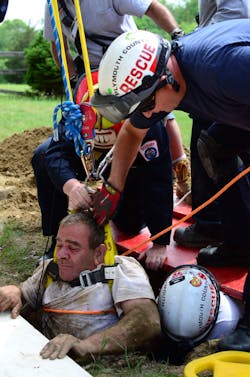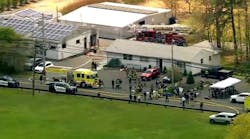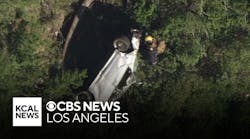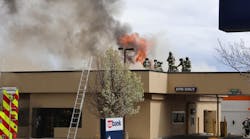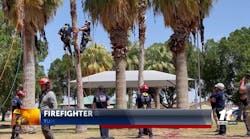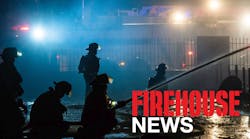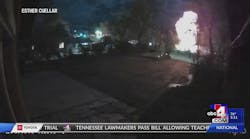There is no mandatory standard for technical rescuers in the United States. We have NFPA 1006: Standard for Technical Rescuer Professional Qualifications; however, this is a “wanna meet”—not a “gotta meet” goal. Don’t mistake me; I am not advocating a mandatory set of standards in this field. You can tell quite a lot about an organization by the requirements they voluntarily set, and a team that is forced to meet standards that it collectively feels are unattainable or undesirable may resort to falsification to attain those standards. The last thing we need in our profession is more bureaucracy, yet I have always felt that meeting the standards of an outside agency is the best way of validating a training program.
NFPA 1006, in my opinion, is the best way of setting realistic, attainable training goals for any technical rescue team that wishes to be taken seriously. Many reputable agencies, such as the International Fire Service Accreditation Congress (IFSAC), Proboard, FEMA and the State Urban Search & Rescue Alliance (SUSAR) use NFPA 1006 to certify training programs that will be taught under their banners. One can hardly ignore such a well-respected document.
Breaking down the Standard
The Standard is well built, easily understandable and navigable. Chapters 1 through 4 are explanatory, showing the scope and purpose of the document, giving definitions, and outlining the minimum physical, age, etc., requirements to enter the technical rescue field, wisely leaving the specifics of those requirements to the Authority Having Jurisdiction (i.e., the boss).
Next comes the heart of the Standard—the Job Performance Requirements (JPRs). Chapter 5 lists those requirements necessary for every member of the technical rescue profession. They are mainly concerned with tasks involving medical care, maintenance, basic rope skills, etc. Chapters 6 through 19 list the JPRs necessary for specific disciplines, such as rope, confined space and surface water rescue. These JPRs tell an instructor what to do to meet the Standard, not how to meet it. If you want suggestions on how to meet the JPRs, you will find them in Annexes A through G.
The New Orleans Fire Department uses three types of training to build and maintain the professionalism of our technical rescue units—initial, ongoing and refresher:
- Initial training is used to prepare technical rescue candidates for service with the unit.
- Ongoing training is daily, task-based, informal training conducted by the unit captains.
- Refresher training is a formal program, conducted by the Deputy Chief of Special Operations and Special Operations Training Coordinator to ensure that unit members maintain a high skill level as individuals and as a team.
We have used NFPA 1006 as a guide for our initial and refresher training programs.
Training time
Initial training is a formal introduction to the wonderful world of technical rescue. The object is to take a group of novices and give them a basic understanding of a field they are hoping to enter. They will not be experts at the end of their training, but they should be capable and knowledgeable. This could be accomplished by training the students to Technician Level I, which is defined as being able to apply limited techniques in the chosen discipline. However, it is so easy to train the students to Level II (the ability to apply advanced techniques) that we have chosen that route for our initial training.
We usually begin our initial training with a half-day or so of classroom training. Here we explain to our students the new tools and techniques they will be learning during the class. Most people, especially firefighters, are action-oriented and do not respond well to the classroom. Thus, our next step takes the students outside to task-based training.
During this training, the students perform each one of the JPRs listed in Standard 1006 for the class discipline. This is documented using a Practical Application Scoresheet. Once the students have shown a fair mastery of the tasks listed, we move to scenario-based training. I have found that students who learn solely by repetition lose their skills very quickly unless they practice the tasks continuously; however, students who discover what the tasks (i.e., build and operate a simple or compound mechanical advantage system) can be used for ultimately understand the skill and hang on to it much longer. We have a Scenario Scoresheet to keep track of our students and make sure that we don’t have the same students building the mechanical advantage system every scenario.
As the class progresses, the scenarios get much harder and more complicated. We can tell we’ve had a good class if our instructors are watching the students solve the final “screamer” scenario and simultaneously scratching their heads and saying, “Why didn’t we think of that?” We also administer a written test that incorporates each of the JPRs to ensure our students have mastery of their subject.
When we sat down to build our refresher program, Chief Joseph Wheeler and I decided to utilize Standard 1006 there as well. We designated the last three weekdays of the month as testing days. The Special Operations units come out to our Academy on those days and are tested on a number of JPRs. We test on multiple JPRs to ensure we cover in one year all of those required for the several disciplines our units are proficient in. The units are tested individually through a written test and as a team through a practical application. The unit captains are given a sample written test and the actual practical scoresheet at the beginning of the month, so that they can incorporate this into their ongoing training. These records are a useful training effectiveness tracking tool.
In sum
When utilized properly, NFPA 1006 can be an excellent foundation for creating, implementing, validating and tracking a first-rate technical rescue training program for any size and type of organization. Should any of our readers be interested in getting electronic copies of the documents we use here in New Orleans, please contact me at [email protected].
